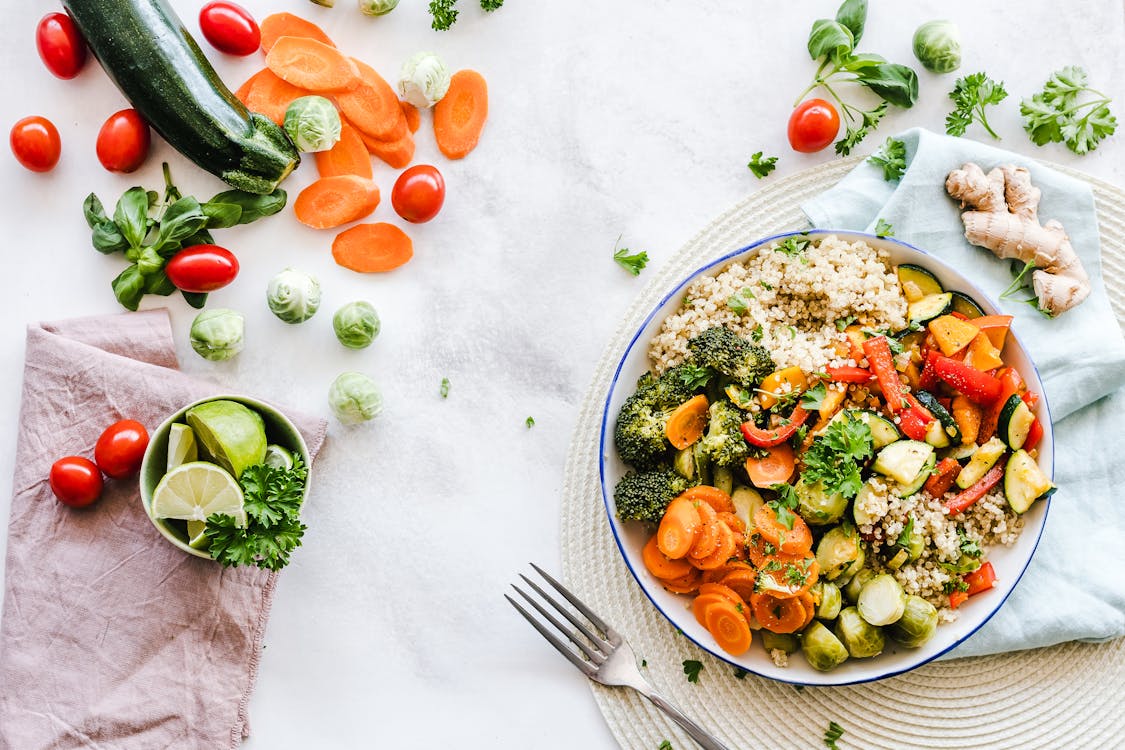Natural Ways to Improve Digestion: Effective Tips for a Healthier Gut
In today’s fast-paced world, digestive issues have become increasingly common. Bloating, gas, and indigestion can disrupt daily life, but there are natural ways to improve digestion and promote a healthier gut. By incorporating simple lifestyle and dietary changes, you can enhance your digestive health naturally.

Understanding Digestion
Digestion is a complex process where the body breaks down food into nutrients, which are then absorbed into the bloodstream. A well-functioning digestive system is crucial for overall health, as it ensures your body gets the nutrients it needs to function properly.
Top Natural Ways to Improve Digestion
1. Eat a Fiber-Rich Diet
Fiber is essential for healthy digestion. It adds bulk to your stool, making it easier to pass and preventing constipation. There are two types of fiber: soluble and insoluble. Soluble fiber dissolves in water and forms a gel-like substance, which can help with diarrhea and loose stools. Insoluble fiber adds bulk to your stool and helps food pass more quickly through the stomach and intestines.
Sources of Fiber:
- Fruits (apples, bananas, berries)
- Vegetables (carrots, broccoli, leafy greens)
- Whole grains (oats, brown rice, quinoa)
- Legumes (beans, lentils, chickpeas)
2. Stay Hydrated
Water is vital for digestion. It helps break down food, absorb nutrients, and soften stool. Dehydration can lead to constipation and other digestive issues. Aim to drink at least eight glasses of water a day, and more if you are active or live in a hot climate.
3. Chew Your Food Thoroughly
Digestion begins in the mouth. Chewing your food thoroughly breaks it down into smaller pieces, making it easier for your stomach to digest. It also stimulates saliva production, which contains enzymes that begin the digestion of carbohydrates. Taking your time to eat and chewing well can prevent overeating and improve your digestion.
4. Incorporate Probiotics and Prebiotics
Probiotics are beneficial bacteria that help maintain a healthy gut flora, while prebiotics are non-digestible fibers that feed these good bacteria. Together, they support a balanced gut microbiome, which is essential for efficient digestion.
Sources of Probiotics:
- Yogurt
- Kefir
- Sauerkraut
- Kimchi
- Miso
Sources of Prebiotics:
- Garlic
- Onions
- Leeks
- Asparagus
- Bananas
5. Manage Stress
Chronic stress can negatively impact your digestive system, leading to conditions like irritable bowel syndrome (IBS). Practicing stress-reducing techniques such as yoga, meditation, deep breathing exercises, and regular physical activity can help improve digestion and overall well-being.
6. Exercise Regularly
Physical activity helps stimulate the muscles in your GI tract, promoting the movement of food and waste through your digestive system. Regular exercise can also help reduce stress, another common contributor to digestive issues.
Exercise Recommendations:
- Aim for at least 30 minutes of moderate exercise most days of the week.
- Activities like walking, swimming, cycling, and yoga are particularly beneficial.
7. Avoid Overeating and Eat Smaller Meals
Overeating can overwhelm your digestive system, leading to discomfort and indigestion. Eating smaller, more frequent meals can be easier on your digestive system and help maintain steady blood sugar levels.
8. Limit Processed Foods and Sugar
Processed foods and added sugars can disrupt the balance of good bacteria in your gut, leading to digestive problems. Opt for whole, unprocessed foods whenever possible to support healthy digestion.
9. Get Enough Sleep
Sleep is essential for your body to repair and rejuvenate, including your digestive system. Poor sleep can negatively affect your gut health, so aim for 7-9 hours of quality sleep each night.
10. Try Herbal Remedies
Certain herbs have been traditionally used to aid digestion. Ginger, peppermint, and fennel are known for their digestive benefits.
Herbal Remedies:
- Ginger: Helps reduce nausea and improves digestion.
- Peppermint: Can relieve symptoms of IBS.
- Fennel: Helps prevent gas and bloating.
Conclusion
Improving your digestion naturally involves a combination of dietary choices, lifestyle changes, and mindfulness. By eating a fiber-rich diet, staying hydrated, chewing your food well, incorporating probiotics and prebiotics, managing stress, exercising regularly, avoiding overeating, limiting processed foods and sugar, getting enough sleep, and trying herbal remedies, you can support a healthier digestive system. Implementing these natural strategies can lead to better digestion and overall improved well-being.
Remember, everyone's body is different. It’s important to listen to your body and consult with a healthcare professional if you have persistent digestive issues. Start making these changes today for a healthier gut and a happier you!

 Cricket Score Counter
Cricket Score Counter Heads or Tails
Heads or Tails
You have not logged in, please Login to comment.